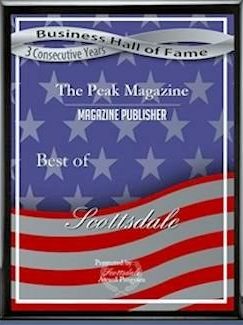June 12, 2017
Contributed by Claude H. Trottier, University of Rhode Island, ’60
Here are the requirements for admission to the Rhode Island College of Agriculture and Mechanic Arts for September 1893. The College, which later became the University of Rhode Island, had opened the year before.
Note. Dear reader, I assume this was a closed-book exam and in 1893 they did not have access to a calculator or Google. Good luck. Unfortunately, we don’t have the answer sheet for the test.
Arithmetic
#1. Find the L. C. M. and G. C. D. of 724 and 896.
#2. Find the cost of 8,462 lbs. of hay, at $9.50 a ton.
#3. A field containing 18 acres is 80 rods long. Find the cost of fencing it at $1.25 a rod.
#4. A merchant sells a wagon for $161, and gains 15 percent. How much did he gain?
#5. Find the value of
7 4/11 – 5 1/10
__________
4 1/3 of 2 1/5
#6. If copper is mixed with 20 percent. of its weight of nickel, what percent of the mixture is nickel?
#7. Find the interest on $960 from March 5, 1882 to Sept. 25, 1888, at 7 percent.
#8. Which is the better to buy flour at $8 per barrel on 6 months’ credit, or at $7.50 cash, money being worth 6 percent?
#9. What will be the cost of plastering the walls and ceiling of a room 27 feet 4 inches long, 20 feet wide, and 12 feet 6 inches high, at 27 cents per square yard, if 20 square yards be deducted for doors, windows, and baseboard?
# 10. A farmer sowed 5 bushels, one peck, 1 quart of seed, and harvested from it 103 bushels, 3 pecks, 5 quarts. How much did he raise from a bushel of seed?
Geography
#1. What are the circles of the earth?
#2. What are the meridians?
#3. Define latitude and longitude.
#4. What two meridians bound the hemispheres?
#5. Define the two principal forms of government.
#6. Bound North America and describe its political divisions.
#7. Why is the climate of Western Europe different from that of America in similar latitudes?
#8. Describe the mountains, principal rivers and lakes of North America.
#9. Describe the natural routes of commerce.
History
#1. When, where and by whom was America discovered?
#2. Name four prominent statesmen before the Revolution, and tell all you can about them.
#3. Give the causes of the Revolutionary War.
#4. In what other wars did the United States engage before 1860, and for what reasons?
#5. What is meant by the Missouri Compromise and the Monroe Doctrine?
#6. Name the causes of the late Rebellion.
#7. Name three important battles of the Rebellion.
#8. Who were the leading generals-Union and Confederate in the late war?
#9. Who was the Union, and who was the Confederate President during the Rebellion?
#10. Name the Presidents elected since the late war. State whether they have been Democrats or Republicans, and how many terms they have served.
English
#1. Name the parts of speech and give an example of each.
#2. Compare the adjectives good, bad, pleasant, awkward and beautiful.
#3. Illustrate the differences between transitive and intransitive, regular and irregular verbs.
#4. Give the principal parts of lie, lay, sit and set. Write four sentences containing forms of the above verbs correctly used.
#5. Rewrite the following selection, using capitals and marks of punctuation as they may be needed:
as i lie here wrote helen jackson while waiting for death nothing looks to me of any value except the words I have spoken for the Indian. i did not write ramona said the great heart it wrote itself the heart had been consecrated and the work followed let t his ramona school in this time honored city be consecrated with the wealth of full hearts and hands and the good result must follow.
#6. Write a short composition on either of these two subjects:
a. A day’s fishing.
b. What I know about cooking.
Related Web Site
University of Rhode Island, www.uri.edu Website
The Peak Welcomes Your Comment
GPPA Membership Make a Donation to GPPA Peak Advertizements & Advertorials



























Recent Comments